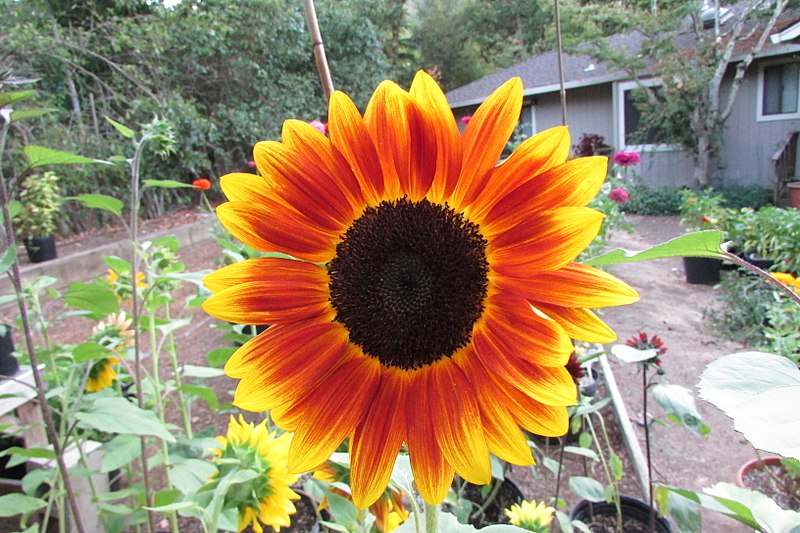This looks like a long poem, but it's full of such eager joy that I couldn't bear to leave out any of it.
Maying traditionally involves girls going out at dawn into the fields and woods to pick flowers.
Young men are usually more than willing to accompany them.
Queen Guinevere's Maying by John Collier
Get up, get up for shame, the Blooming Morne
Upon her wings presents the god unshorne.
See how Aurora throwes her faire
Fresh-quilted colours through the aire:
Get up, sweet-Slug-a-bed, and see
The Dew-bespangling Herbe and Tree.
Each Flower has wept, and bow'd toward the East,
Above an houre since; yet you not drest,
Nay! not so much as out of bed?
When all the Birds have Mattens seyd,
And sung their thankful Hymnes: 'tis sin,
Nay, profanation to keep in,
When as a thousand Virgins on this day,
Spring, sooner than the Lark, to fetch in May.
Rise; and put on your Foliage, and be seene
To come forth, like the Spring-time, fresh and greene;
And sweet as Flora. Take no care
For Jewels for your Gowne, or Haire:
Feare not; the leaves will strew
Gemms in abundance upon you:
Besides, the childhood of the Day has kept,
Against you come, some Orient Pearls unwept:
Come, and receive them while the light
Hangs on the Dew-locks of the night:
And Titan on the Eastern hill
Retires himselfe, or else stands still
Till you come forth. Wash, dresse, be briefe in praying:
Few Beads are best, when once we goe a Maying.
Come, my Corinna, come; and comming, marke
How each field turns a street; each street a Parke
Made green, and trimm'd with trees: see how
Devotion gives each House a Bough,
Or Branch: Each Porch, each doore, ere this,
An Arke a Tabernacle is
Made up of white-thorn neatly enterwove;
As if here were those cooler shades of love.
Can such delights be in the street,
And open fields, and we not see't?
Come, we'll abroad; and let's obay
The Proclamation made for May:
And sin no more, as we have done, by staying;
But my Corinna, come, let's goe a Maying.
There's not a budding Boy, or Girle, this day,
But is got up, and gone to bring in May.
A deale of Youth, ere this, is come
Back, and with White-thorn laden home.
Some have dispatcht their Cakes and Creame,
Before that we have left to dreame:
And some have wept, and woo'd, and plighted Troth,
And chose their Priest, ere we can cast off sloth:
Many a green-gown has been given;
Many a kisse, both odde and even:
Many a glance too has been sent
From out the eye, Loves Firmament:
Many a jest told of the Keyes betraying
This night, and Locks pickt, yet w'are not a Maying.
Come, let us goe, while we are in our prime;
And take the harmlesse follie of the time.
We shall grow old apace, and die
Before we know our liberty.
Our life is short; and our dayes run
As fast away as do's the Sunne:
And as a vapour, or a drop of raine
Once lost, can ne'r be found againe:
So when or you or I are made
A fable, song, or fleeting shade;
All love, all liking, all delight
Lies drown'd with us in endlesse night.
Then while time serves, and we are but decaying;
Come, my Corinna, come, let's goe a Maying.
Word To Use Today: May. This word comes from Old French, from the Roman goddess with the same name as the Greek goddess Maia. Maia is a goddess of the Earth, and a notably sparky creature. Her name is probably something to do with the Greek word maiores, which means great, with the same kind of meaning as in our own English word great-grandmother.






















